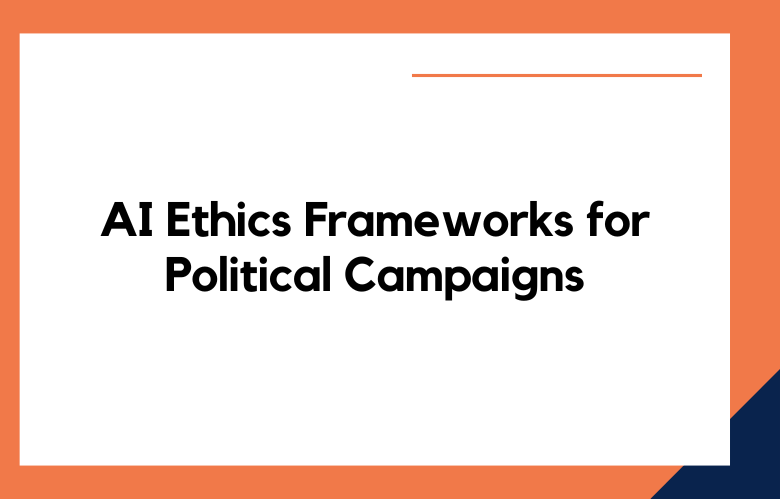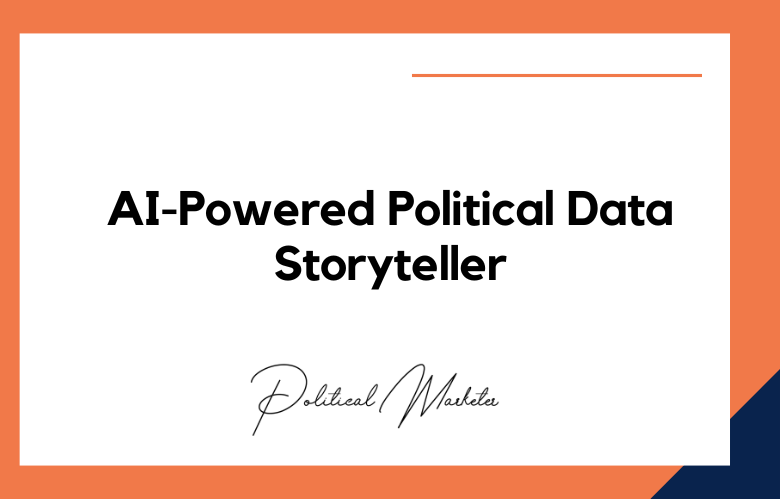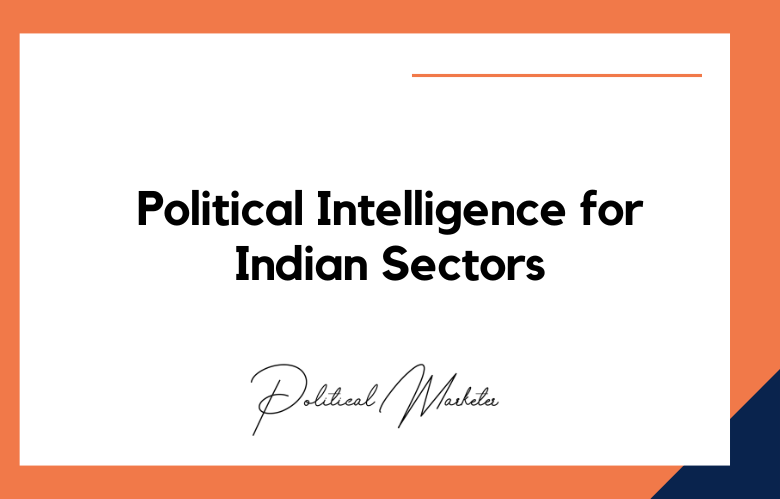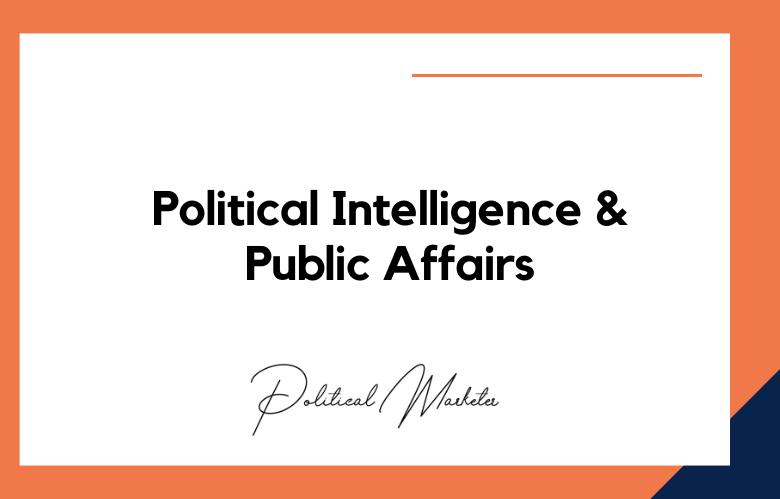AI ethics frameworks for political campaigns are essential for guiding the responsible use of artificial intelligence in electoral politics’ susceptible and impactful realm.
As AI technologies, such as data analytics, predictive modeling, and personalized communication, become integral to campaign strategies, these frameworks provide a structured approach to ensuring that such tools are used ethically, transparently, and in a manner that respects voter rights and democratic processes.
AI Ethics Frameworks for Political Campaigns: Understanding, Addressing, and Shaping
The development and implementation of AI ethics frameworks in political campaigns involve establishing clear principles that address vital ethical concerns, including data privacy, algorithmic transparency, fairness, accountability, and the avoidance of bias. These frameworks serve as a guide for the ethical deployment of AI and as a commitment to voters that their data and the democratic process are treated with the utmost respect and care.
An effective AI ethics framework for political campaigns requires a collaborative effort involving data scientists, ethicists, legal experts, and political strategists to ensure a comprehensive understanding of AI’s ethical implications in this unique context. It also necessitates ongoing dialogue with stakeholders, including the public, to foster trust and transparency.
In embracing AI ethics frameworks, political campaigns can navigate the complex challenges of advanced technologies, harnessing their potential to enhance engagement and understanding among the electorate while safeguarding the foundational principles of democracy and individual rights.
- Key Takeaways
- Understanding AI’s Role in Political Campaigns
- Ethical Concerns in AI-Powered Advertising
- Promoting Transparency and Trust in AI
- Addressing Algorithmic Bias and Fairness
- The Importance of Public Education on AI
- Setting Standards for Ethical AI Use
- Ensuring Accountability and Human Oversight
- Shaping Responsible Political AI Practices
- Recommendations for Ethical AI Frameworks
- Closing Thoughts
- Frequently Asked Questions
- What is the significance of AI ethics frameworks in political campaigns?
- How can ethical AI frameworks promote transparency in political campaigns?
- Why is addressing algorithmic bias critical in AI-powered advertising during political campaigns?
- How does public education on AI contribute to ethical practices in political campaigns?
- What role does human oversight play in ensuring accountability when using AI for political purposes?
Did you know that 56% of people believe that AI should be regulated to ensure ethical use in political campaigns and elections and to protect human autonomy and privacy in automated decision-making? As technology continues to shape the landscape of elections, the need for robust AI ethics frameworks, including privacy and human freedom, has become increasingly paramount. These frameworks serve as guidelines to navigate the complex intersection of artificial intelligence, elections, and political campaigning, ensuring transparency, accountability, fairness, privacy, and principles.
From safeguarding voter privacy to preventing algorithmic bias and ensuring fairness in automated decision-making, implementing ethical AI practices is essential for upholding democratic values in the digital age. Join us as we uncover how these frameworks, based on fairness and privacy principles, can pave the way for a more ethical and equitable electoral process with themes.
Key Takeaways
- Understanding the impact of AI in political campaigns is crucial to navigating its ethical challenges effectively.
- Ethical concerns in AI-powered advertising highlight the need for transparency and accountability in campaign strategies.
- Promoting transparency and trust in AI systems used for political purposes can enhance public confidence and mitigate ethical risks.
- Addressing algorithmic bias and ensuring fairness in AI applications is essential to upholding democratic principles and preventing discrimination.
- Public education on AI is critical to fostering informed discussions and decision-making around its use in political campaigns.
- Setting clear standards for ethical AI use in political contexts can guide campaign practices and safeguard against misuse.
Understanding AI’s Role in Political Campaigns
Audience Targeting
AI plays a crucial role in enhancing audience targeting for political campaigns. By leveraging vast data, AI algorithms can identify specific voter groups based on demographics, behaviors, and interests. This enables political advertisers to tailor their messages more effectively.
Politicians can use AI-driven tools to reach their target audience with personalized content, increasing the likelihood of engagement and support. These technologies allow political advertisers’ campaigns to analyze vast amounts of data with privacy tools to analyze voter preferences and behaviors better.
Campaign Strategy Optimization
AI offers significant potential in optimizing campaign strategies for politicians and political advertisers, focusing on ads, policy, and issues. Through advanced data analytics and analysis, AI can provide valuable insights into the effectiveness of different messaging approaches and channels. This allows campaigns to allocate resources more efficiently.
By utilizing AI algorithms for policy analysis to analyze market forces and trends, government politicians can adapt their real-time strategies to maximize impact. These innovations enable campaigns to stay agile and responsive in a fast-paced political landscape.
Voter Engagement Innovations
Introducing AI-driven innovations like chatbots has revolutionized voter engagement in political campaigns. Chatbots powered by AI technology can interact with voters on various platforms, providing information, answering questions, and even collecting feedback.
These chatbots offer voters a personalized and interactive experience, enhancing their engagement with the campaign. Chatbots save time and resources by automating responses and interactions while ensuring consistent communication with the electorate.
Ethical Concerns in AI-Powered Advertising
Data Privacy
Concerns about data privacy have intensified with the rise of AI-powered political advertising. Online safety is at risk due to the vast amount of personal information collected for targeted ads.
AI algorithms analyzing user data for ad targeting can lead to potential risks such as unauthorized access and misuse of sensitive information, highlighting the importance of privacy and analysis.
Bias Prevention
Ensuring fair representation is crucial to address automated decision-making in political campaigns. Harmful content can be amplified if AI algorithms are not adequately monitored and regulated.
Transparency in how AI systems make decisions is essential to mitigate biases. By incorporating diverse perspectives during algorithm development, we can reduce the chances of discriminatory outcomes.
Misinformation Counteraction
Counteracting the unintentional spread of misinformation by AI tools, particularly in topic analysis, is paramount in maintaining the integrity of political campaigns. The dissemination of false information through targeted ads can significantly impact public opinion.
Promoting Transparency and Trust in AI
Independent Fact-Checkers
Transparency is crucial for fostering public trust in AI applications within political campaigns. One effective strategy involves employing independent fact-checkers to verify the accuracy of information disseminated by AI algorithms. Transparency can be upheld by ensuring that the data used in campaign messaging is factual and unbiased.
Public confidence in AI-driven political advertising hinges on the disclosure of how algorithms are trained and the sources of their training data. This level of openness enhances trust and addresses concerns related to privacy and personal data protection. When voters understand how their information is utilized, they are more likely to engage with campaign content.
Public Education
Understanding AI technology is pivotal for improving public perception and trustworthiness during political campaigns. Through educational initiatives such as workshops, online resources, and even a dedicated podcast episode, individuals can gain insights into how AI functions within advertising contexts, topics, and analysis. This knowledge empowers voters to discern between legitimate content and potential misinformation or fake news.
List:
- Utilizing independent fact-checkers
- Enhancing disclosure of training data
Incorporating a layer of human oversight through independent verification mechanisms ensures that AI algorithms do not perpetuate biases or inaccuracies. By involving external entities to validate campaign messages, the credibility of political advertising is bolstered, contributing to a more informed electorate.
Moreover, promoting transparency regarding handling personal information within AI systems builds a foundation of accountability. Voters are reassured when they know their data is handled responsibly, fostering a sense of security and reinforcing their willingness to engage with digital campaign materials.
Public education serves as a cornerstone for cultivating an environment where voters can confidently navigate the complexities of AI-enabled political campaigning. As individuals become more adept at recognizing the nuances of algorithmic decision-making, they are better equipped to evaluate the content presented to them during elections critically.
Addressing Algorithmic Bias and Fairness
Regular Audits
Regular audits are crucial to identify and rectify algorithmic biases within AI systems. Organizations can ensure that their AI algorithms are not inadvertently discriminating against certain groups by conducting periodic assessments. These audits help in maintaining fairness and transparency in decision-making processes.
Diversity in data selection plays a significant role in minimizing biases in AI applications. When datasets are diverse and inclusive, it reduces the chances of indirect discrimination based on factors like race or gender. Organizations must prioritize collecting data from varied sources to achieve a more balanced representation of different demographics.
Human Oversight
Human oversight is essential to ensure accountability and fairness in AI algorithms. While machines can process vast amounts of data efficiently, they cannot interpret context and nuances accurately. Human intervention is necessary to review decisions made by AI systems, especially in sensitive areas like biometric identification or political campaign targeting.
- Regular audits help identify and rectify algorithmic biases.
- Diversity in data selection minimizes indirect discrimination.
- Human oversight ensures accountability and fairness in AI algorithms.
The Importance of Public Education on AI
Empowering Individuals
Public education on AI use is crucial for empowering individuals to make informed decisions. By enhancing digital literacy, individuals can better understand the impact of AI in political campaigns. This knowledge enables them to assess information and discern its validity critically.
Educating the public about AI in political campaigns is pivotal in promoting the common good. When well-informed, individuals can actively participate in discussions surrounding AI ethics frameworks. This involvement contributes to shaping policies that prioritize the common good of society.
Fostering Trust and Transparency
Public awareness of AI’s role in political campaigns fosters trust and transparency in the electoral process. When voters know how AI is utilized, they are more likely to trust the integrity of the campaign strategies. This transparency enhances the credibility of candidates and political parties.
- Pros:
- Informed decision-making
- Enhanced critical thinking skills
- Increased public engagement
Promoting Critical Thinking
Educating the public on AI ethics frameworks for political campaigns encourages critical thinking. By understanding how algorithms operate, individuals can analyze the potential biases in campaign strategies. This critical approach empowers voters to evaluate information objectively and make reasoned choices.
Public education is a tool for combating misinformation and disinformation prevalent in political campaigns. By equipping individuals with knowledge about AI technologies, they can discern between factual information and misleading content. This ability to differentiate ensures a more informed electorate.
- Cons:
- Potential resistance to new information
- Challenges in reaching all segments of society
Building a Knowledgeable Society
Society can build a knowledgeable electorate by prioritizing public education on AI in political campaigns. This informed populace is better equipped to hold policymakers and candidates accountable for using AI technologies. Moreover, it cultivates a culture where ethical considerations are central to political decision-making.
Engaging with citizens through educational initiatives creates a more inclusive democratic process. When individuals have access to information about AI ethics frameworks, they become active participants in shaping the future of political campaigning. This inclusivity strengthens democracy by ensuring diverse perspectives are considered.
Setting Standards for Ethical AI Use
Stakeholder Involvement
Stakeholders are crucial in establishing ethical guidelines and industry standards for AI in political campaigns. Their diverse perspectives and expertise contribute to creating robust frameworks. Collaboration among stakeholders, including policymakers, tech experts, and ethicists, is essential to ensure comprehensive coverage of ethical considerations.
Comprehensive Framework Development
To address the complexities of AI in politics, it is imperative to develop comprehensive ethical frameworks. These frameworks should encompass various aspects such as transparency, accountability, and fairness to mitigate potential risks and biases associated with AI technologies. These frameworks can reflect diverse viewpoints and priorities by involving a wide range of stakeholders.
Ensuring Accountability and Human Oversight
Transparency in AI Applications
Transparency is crucial in AI-powered political campaigns to ensure accountability and ethical practices. By providing clear insights into algorithms’ functions, transparency enables the public to understand the decision-making process behind targeted advertisements.
Role of Human Oversight
Human oversight is vital in mitigating the risks associated with AI applications in political campaigns. It ensures that human decisions are not overridden by automated processes, preserving human autonomy and upholding ethical standards.
Implementing Risk Assessments
Implementing thorough risk assessments is essential to identify potential threats and vulnerabilities in AI systems used for political advertising. By conducting regular evaluations, organizations can proactively address any risks, ensuring the safety and integrity of the campaign process.
Shaping Responsible Political AI Practices
Ethical Guidelines
Responsible AI systems are crucial in shaping ethical practices within political campaigns. By adhering to policies and principles, AI technologies can ensure transparency and accountability in decision-making processes. Civil society organizations often develop policy documents outlining the ethical framework for utilizing AI in politics.
AI’s involvement in political campaigns extends beyond mere automation; it influences voters’ perceptions and participation levels. Integrating social justice principles into AI algorithms can help address systemic biases and promote fair representation in political activities.
Impact Assessment
Conducting a thorough impact analysis is essential when developing AI tools for political purposes. This involves evaluating how AI decisions affect various stakeholders, including marginalized groups and vulnerable populations. By prioritizing research on the societal implications of AI applications, policymakers can mitigate potential harms and uphold democratic values.
Training and Awareness
Ensuring that individuals involved in political AI development receive adequate training on ethical considerations is paramount. By familiarizing themselves with ethical guidelines, practitioners can make informed decisions that align with human rights and democratic norms. Raising public awareness about AI’s implications in politics fosters informed decision-making among voters.
Recommendations for Ethical AI Frameworks
Implementation Strategies
Political campaigns can implement ethical AI frameworks by establishing clear guidelines and protocols. These should outline AI use’s moral principles, such as fairness, accountability, and transparency. Creating interdisciplinary teams comprising ethicists, technologists, and policymakers can ensure diverse perspectives in designing and implementing these frameworks.
Ensuring Ethical Use
Regular audits and assessments of AI algorithms are crucial to ensuring ethical AI use in political campaigns. This involves monitoring for biases, inaccuracies, or unintended consequences that may arise during the campaign process. Implementing mechanisms for explainability and interpretability can enhance transparency in how AI systems make decisions.
Promoting Transparency
Transparency is critical to building trust in AI systems used in political campaigns. Campaigns should disclose the sources of data used by AI algorithms, the decision-making processes involved, and any potential impacts on voters or stakeholders. Utilizing open-source tools and making algorithmic processes accessible to external scrutiny can promote transparency.
Accountability Enhancement
Enhancing accountability through ethical AI frameworks involves establishing mechanisms for recourse and redress in case of algorithmic errors or misuse. Political campaigns should have clear channels for reporting concerns related to AI use and ensuring timely responses to address issues. Incorporating feedback loops from affected individuals or groups can help improve accountability measures over time.
Closing Thoughts
In navigating AI ethics within political campaigns, your awareness of AI’s impact, ethical considerations in advertising, and the need for transparency and fairness is crucial. Educating the public on AI, establishing ethical standards, ensuring accountability, and promoting responsible practices are vital steps. Implementing ethical AI frameworks contributes to a more trustworthy and equitable political landscape. Stay informed, advocate for transparency, and demand accountability to shape a future where AI serves democracy responsibly.
Call: +91 9848321284
Email: [email protected]
Frequently Asked Questions
What is the significance of AI ethics frameworks in political campaigns and elections?
AI ethics frameworks are crucial in ensuring fair and responsible use of AI technologies. They help address bias, transparency, and accountability, promoting trust in AI-powered political campaigns.
How can ethical AI frameworks promote transparency in political campaigns?
Ethical AI frameworks establish guidelines for transparent communication about how AI is used in political campaigns. Promoting openness and disclosure enhances public understanding and trust in the process.
Why is addressing algorithmic bias important in AI-powered advertising during political campaigns? It is important for fairness, privacy, and audience targeting.
Addressing algorithmic bias is essential to ensure fairness and prevent discrimination in targeted advertising. By mitigating bias, political campaigns can reach diverse audiences equitably without reinforcing stereotypes or exclusion.
How does public education on AI contribute to ethical practices in political campaigns?
Public education on AI fosters awareness and understanding among voters, policymakers, and stakeholders. It empowers individuals to make informed decisions about AI use in political campaigns and encourages a more responsible approach to technology adoption.
What role do human oversight, monitoring, privacy, responsibility, and fairness play in ensuring accountability in using AI for political purposes?
Human oversight is critical for monitoring AI systems, detecting errors or biases, and making ethical decisions. Combining human judgment with automated processes strengthens accountability, leading to more transparent and trustworthy political campaigns.











